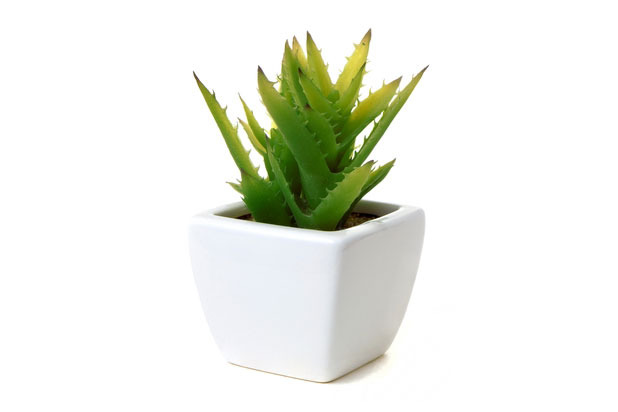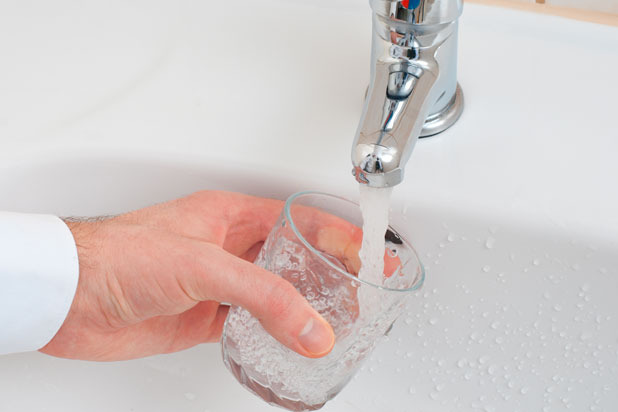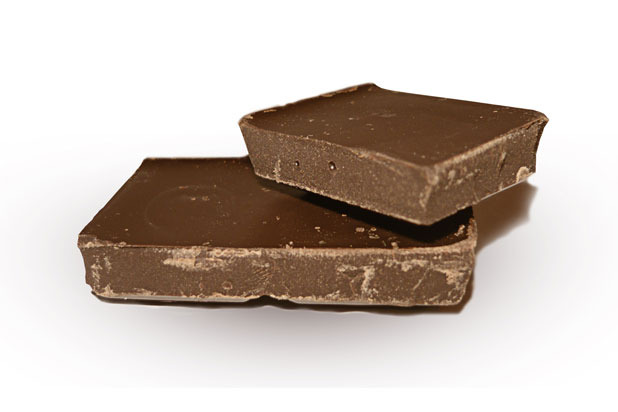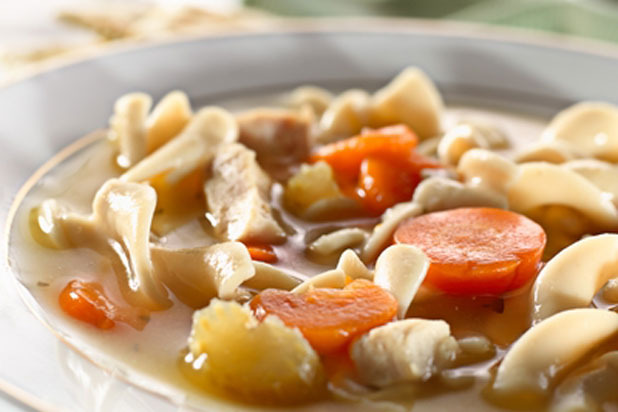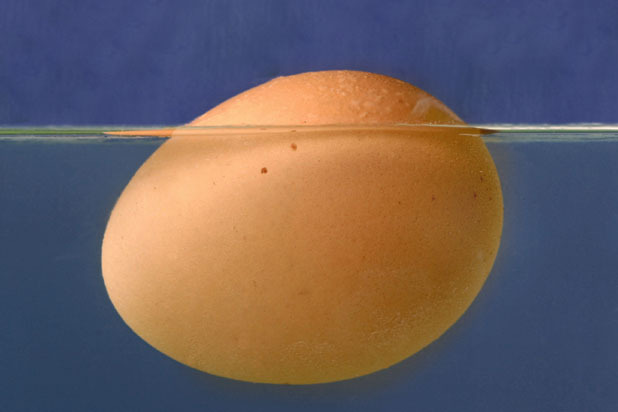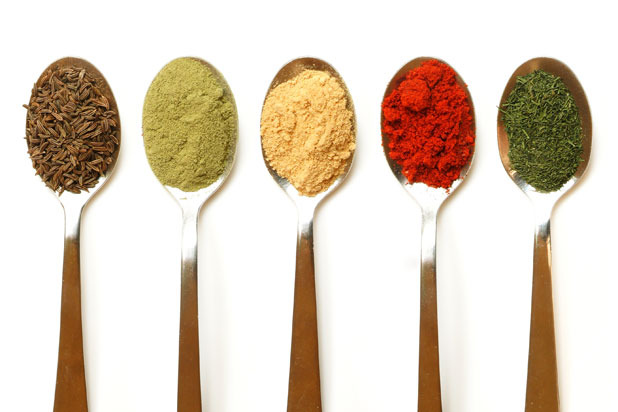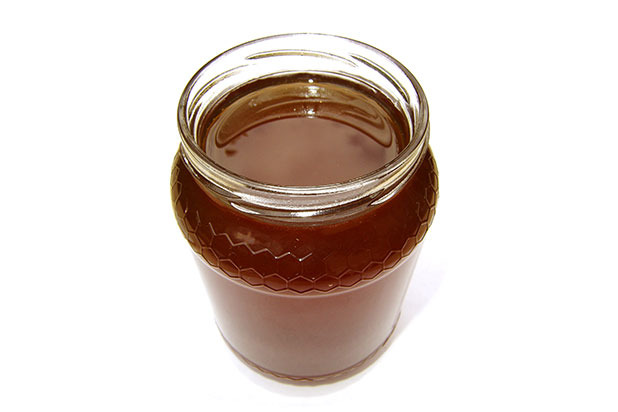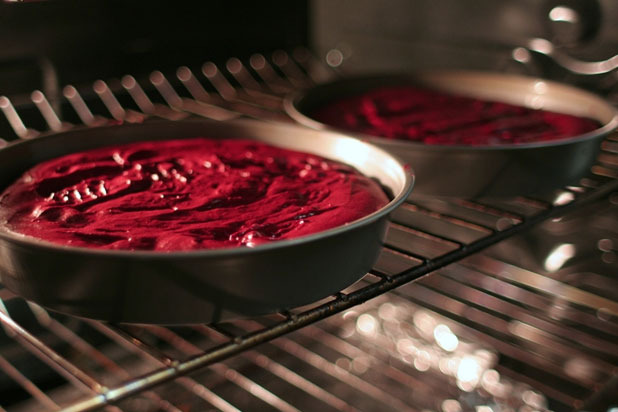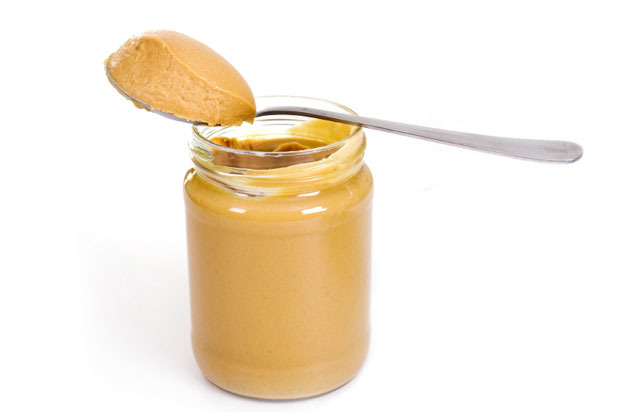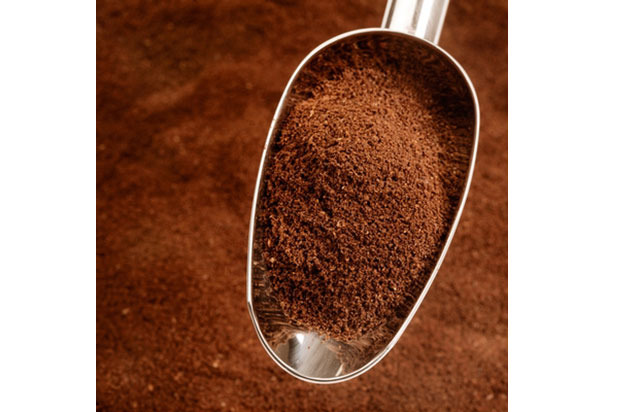10 Hidden Truths About Your Kitchen Slideshow
THE TALE: If you get burned, put butter on it.
VERDICT: False
Whether it was simply a flick of the spatula gone wrong or the classic "didn't think before I touched it" scenario, we've all been burned in the kitchen. An old wives' tale suggests that you run for the closest stick of Land O'Lakes and grease up that painful burn for fast-acting relief and minimal scarring. Problem is, putting butter on a burn, well, burns. Greasing up already charred flesh essentially "traps" heat in, causing more pain. If you're looking for an easily accessible, reliable cooling agent, invest in an aloe plant. One dab instantaneously cools and treats painful run-ins with your stovetop.
In Hot Water
THE TALE: Don't ever drink hot water from the tap.
VERDICT: True
In the kitchen, "hot" usually equates sterile — after all, you'd never hand wash your dishes with cold water would you? However, keeping the valve cranked to scalding hot when cooking or stealing a quick sip from the faucet can actually be one of the most unsanitary things you could do. Lead, known to cause ailments like learning disabilities and seizures, can sneak its way into your water through your pipes. Most homes built before 1986 have lead pipes and the legal amount of lead allowed in "lead-free" pipes is as high as 8 percent. Hot water is more corrosive than cold, dredging up a lot more of the "nasty stuff" and pouring it out through your tap. When consuming water from your tap, be sure that it comes from the cold tap and that hot water is flushed out from the pipe before using it for cooking or drinking.
Live the Sweet Life
THE TALE: Eating chocolate will cause severe breakouts.
VERDICT: False
Forrest Gump's mama had a point — life really is like a box of chocolates. But you should know what you won't get: acne. All those pubescent years spent avoiding this delicacy were sadly wasted. Chocolate has nothing directly to do with having acne. The idea came about when a scientist concluded that fat and sugar (both abundantly found in chocolate) caused oily skin — inevitably leading to breakouts. However, there is no correlation between one food and the cause of acne breakouts — let alone our beloved friend chocolate. Acne occurs due to genetic, hormonal, dietary, and hygienic factors. A diet high in fats, oils, and carbohydrates contributes to bad acne, but unless you are on a chocolate-only diet, rest assured there is no single thread between this delicacy and your skin.
Feeding More Than Your Soul
THE TALE: Chicken soup helps cure the common cold.
VERDICT: True
This old wives' tale seems to be ingrained in the fabric of our being, something humans are just born knowing. When you're sick, you want three things: a bed, a TV, and some chicken noodle soup. But did you know that chicken noodle soup is more than just a comfort food? It actually may help restore you back to health. Dr. Stephen Rennard, of the University of Nebraska Medical Center in Omaha, conducted laboratory tests using blood samples from volunteers to show that the soup inhibited the movement of neutrophils (the most common type of white blood cell that defends against infection). Dr. Rennard believes that, theoretically, by limiting these infection-fighting cells' movement in the body, chicken soup aids in reducing upper respiratory cold symptoms. There is not a pinpointed ingredient that is said to help aid in the cold healing process, and even more reiteration that soup won't cure the common cold. The nutrient-filled broth and combination of wholesome chicken and vegetables helps the body regain strength and retain hydration. Plus, it just tastes comforting, so why not treat your sickened body to a hearty cup of soup?
Egg-Citing News
THE TALE: A bad egg will float in water.
VERDICT: True
If you've ever cracked open a bad egg, you know what a hard way that is to find out your farm-fresh staple is no good. Want to avoid the stomach-turning ordeal? See if you have a floater. Fill up a a fairly deep bowl with water, gently ease the egg into it, and watch if it sinks or swims. If it sinks to the bottom, you get the green light on that egg. If it quickly rises to the top — it's time to count your losses. Eggs begin to lose their freshness when more air enters the egg, causing it to be buoyant, hence why a floater indicates an egg that isn't up to par.
Feelin' Hot, Hot, Hot!
THE TALE: Spicy food will cause ulcers.
VERDICT: False
You would naturally think that a steady diet of hot food would cause an ulcer of burning pain to appear in your poor stomach. But spicy foods are hardly the culprit of this painful ailment (and pro tip: smoking, drinking alcohol, poor eating habits, and stress aren't to blame either). Rather, these things just may irritate an already existing ulcer. When spiral-shaped bacterium called Helicobacter pylori makes a home in the stomach and duodenum, it burrows into the mucosal lining. Nutrients sent by your immune system to help the white blood cells fight this intrusion actually end up feeding the bacteria, causing it to grow. A flourishing crop of H. pylori bacteria eventually causes the actual ulcers. Although spicy food may contribute to an already existing problem, if you are ulcer-free it shouldn't prevent you from indulging in some zesty dishes now and then. Enjoy curry and banana peppers to your heart's content!
The Bee's Knees
THE TALE: Honey will last forever.
VERDICT: True
The truth is, your jar of honey will outlast you. A favorite staple in many households, honey is one of the few "forever foods" you can depend on. Though honey may crystalize, it is never unsafe to eat and doesn't loose its taste. Reportedly, archaeologists found 2,000-year-old jars of honey in Egyptian tombs that still tasted "delicious." It is the antibiotic qualities in honey that keep it from spoiling. Find it crystalized in the cupboard in 10 years? Don't sweat it. Just simply place the jar in warm water, let it loosen, and stir to have your honey back to good as new!
Standing Tall
THE TALE: Slamming the oven door will cause your cake to "fall."
VERDICT: False
Do you remember tiptoeing around the house when mom used to bake her famous pound cake? She would sternly wag her finger and explain that any sudden movements could cause her precious baked good to implode on itself, especially opening and slamming the oven door. Truth is, mom herself may be to blame. When cakes are baked at too high or low a temperature, have slightly off ingredients, aren't mixed correctly, or are baked at a high altitude they can "fall." These subtle differences in environment have even occurred at the hands of the pros, so don't get too mad at mom for her strict no-moving rule.
Eat with Caution
THE TALE: The Heimlich maneuver will not work for someone choking on peanut butter.
VERDICT: True
To the fellow lovers of peanut butter everywhere, take heed: that hearty serving of peanut butter you indulgently scooped out may be your last meal. Eating peanut butter alone, and this is especially true for young children, may create the perfect storm for choking. The Heimlich maneuver is meant to forcefully and abruptly clear your throat of any blockages that prevent breathing. Due to peanut butter's mailable consistency, it would be impossible to dislodge it from a victim's throat with that blunt force. Though it seems almost impossible to resist scooping out a quick nibble of peanut-buttery goodness, you should never consume it by itself.
More Than Morning Fuel
THE TALE: Coffee beans will absorb nasty smells.
VERDICT: True
Some people cannot fathom starting their day without a hot cup of joe. But those ground up coffee beans are good for more than a pick-me-up. They effectively remove foul odors from areas ranging from your refrigerator to your handbag. Ground beans will effectively absorb the odors emanating from the "infected" area and will emit an overpowering aroma of their own. Use dried grounds on hands to take out strong scents left by foods like garlic, sniff them to clear your noses' palate, and even stick them in rooms where smokers convene to rid your home of the smell.
